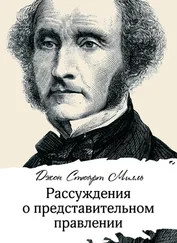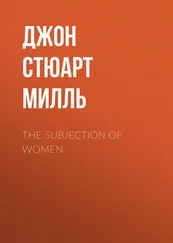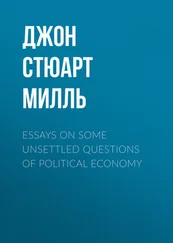Джон Милль - Socialism
Здесь есть возможность читать онлайн «Джон Милль - Socialism» — ознакомительный отрывок электронной книги совершенно бесплатно, а после прочтения отрывка купить полную версию. В некоторых случаях можно слушать аудио, скачать через торрент в формате fb2 и присутствует краткое содержание. Жанр: Философия, literature_19, foreign_antique, foreign_prose, на английском языке. Описание произведения, (предисловие) а так же отзывы посетителей доступны на портале библиотеки ЛибКат.
- Название:Socialism
- Автор:
- Жанр:
- Год:неизвестен
- ISBN:нет данных
- Рейтинг книги:4 / 5. Голосов: 1
-
Избранное:Добавить в избранное
- Отзывы:
-
Ваша оценка:
- 80
- 1
- 2
- 3
- 4
- 5
Socialism: краткое содержание, описание и аннотация
Предлагаем к чтению аннотацию, описание, краткое содержание или предисловие (зависит от того, что написал сам автор книги «Socialism»). Если вы не нашли необходимую информацию о книге — напишите в комментариях, мы постараемся отыскать её.
Socialism — читать онлайн ознакомительный отрывок
Ниже представлен текст книги, разбитый по страницам. Система сохранения места последней прочитанной страницы, позволяет с удобством читать онлайн бесплатно книгу «Socialism», без необходимости каждый раз заново искать на чём Вы остановились. Поставьте закладку, и сможете в любой момент перейти на страницу, на которой закончили чтение.
Интервал:
Закладка:
These evils, then – great poverty, and that poverty very little connected with desert – are the first grand failure of the existing arrangements of society. The second is human misconduct; crime, vice, and folly, with all the sufferings which follow in their train. For, nearly all the forms of misconduct, whether committed towards ourselves or towards others, may be traced to one of three causes: Poverty and its temptations in the many; Idleness and desœuvrement in the few whose circumstances do not compel them to work; bad education, or want of education, in both. The first two must be allowed to be at least failures in the social arrangements, the last is now almost universally admitted to be the fault of those arrangements – it may almost be said the crime. I am speaking loosely and in the rough, for a minuter analysis of the sources of faults of character and errors of conduct would establish far more conclusively the filiation which connects them with a defective organization of society, though it would also show the reciprocal dependence of that faulty state of society on a backward state of the human mind.
At this point, in the enumeration of the evils of society, the mere levellers of former times usually stopped; but their more far-sighted successors, the present Socialists, go farther. In their eyes the very foundation of human life as at present constituted, the very principle on which the production and repartition of all material products is now carried on, is essentially vicious and anti-social. It is the principle of individualism, competition, each one for himself and against all the rest. It is grounded on opposition of interests, not harmony of interests, and under it every one is required to find his place by a struggle, by pushing others back or being pushed back by them. Socialists consider this system of private war (as it may be termed) between every one and every one, especially fatal in an economical point of view and in a moral. Morally considered, its evils are obvious. It is the parent of envy, hatred, and all uncharitableness; it makes every one the natural enemy of all others who cross his path, and every one's path is constantly liable to be crossed. Under the present system hardly any one can gain except by the loss or disappointment of one or of many others. In a well-constituted community every one would be a gainer by every other person's successful exertions; while now we gain by each other's loss and lose by each other's gain, and our greatest gains come from the worst source of all, from death, the death of those who are nearest and should be dearest to us. In its purely economical operation the principle of individual competition receives as unqualified condemnation from the social reformers as in its moral. In the competition of laborers they see the cause of low wages; in the competition of producers the cause of ruin and bankruptcy; and both evils, they affirm, tend constantly to increase as population and wealth make progress; no person (they conceive) being benefited except the great proprietors of land, the holders of fixed money incomes, and a few great capitalists, whose wealth is gradually enabling them to undersell all other producers, to absorb the whole of the operations of industry into their own sphere, to drive from the market all employers of labor except themselves, and to convert the laborers into a kind of slaves or serfs, dependent on them for the means of support, and compelled to accept these on such terms as they choose to offer. Society, in short, is travelling onward, according to these speculators, towards a new feudality, that of the great capitalists.
As I shall have ample opportunity in future chapters to state my own opinion on these topics, and on many others connected with and subordinate to them, I shall now, without further preamble, exhibit the opinions of distinguished Socialists on the present arrangements of society, in a selection of passages from their published writings. For the present I desire to be considered as a mere reporter of the opinions of others. Hereafter it will appear how much of what I cite agrees or differs with my own sentiments.
The clearest, the most compact, and the most precise and specific statement of the case of the Socialists generally against the existing order of society in the economical department of human affairs, is to be found in the little work of M. Louis Blanc, Organisation du Travail . My first extracts, therefore, on this part of the subject, shall be taken from that treatise.
"Competition is for the people a system of extermination. Is the poor man a member of society, or an enemy to it? We ask for an answer.
"All around him he finds the soil preoccupied. Can he cultivate the earth for himself? No; for the right of the first occupant has become a right of property. Can he gather the fruits which the hand of God ripens on the path of man? No; for, like the soil, the fruits have been appropriated . Can he hunt or fish? No; for that is a right which is dependent upon the government. Can he draw water from a spring enclosed in a field? No; for the proprietor of the field is, in virtue of his right to the field, proprietor of the fountain. Can he, dying of hunger and thirst, stretch out his hands for the charity of his fellow-creatures? No; for there are laws against begging. Can he, exhausted by fatigue and without a refuge, lie down to sleep upon the pavement of the streets? No; for there are laws against vagabondage. Can he, dying from the cruel native land where everything is denied him, seek the means of living far from the place where life was given him? No; for it is not permitted to change your country except on certain conditions which the poor man cannot fulfil.
"What, then, can the unhappy man do? He will say, 'I have hands to work with, I have intelligence, I have youth, I have strength; take all this, and in return give me a morsel of bread.' This is what the working-men do say. But even here the poor man may be answered, 'I have no work to give you.' What is he to do then?"
"What is competition from the point of view of the workman? It is work put up to auction. A contractor wants a workman: three present themselves. – How much for your work? – Half-a-crown; I have a wife and children. – Well; and how much for yours? – Two shillings: I have no children, but I have a wife. – Very well; and now how much for you? – One and eightpence are enough for me; I am single. Then you shall have the work. It is done; the bargain is struck. And what are the other two workmen to do? It is to be hoped they will die quietly of hunger. But what if they take to thieving? Never fear; we have the police. To murder? We have got the hangman. As for the lucky one, his triumph is only temporary. Let a fourth workman make his appearance, strong enough to fast every other day, and his price will run down still lower; then there will be a new outcast, a new recruit for the prison perhaps!
Конец ознакомительного фрагмента.
Текст предоставлен ООО «ЛитРес».
Прочитайте эту книгу целиком, купив полную легальную версию на ЛитРес.
Безопасно оплатить книгу можно банковской картой Visa, MasterCard, Maestro, со счета мобильного телефона, с платежного терминала, в салоне МТС или Связной, через PayPal, WebMoney, Яндекс.Деньги, QIWI Кошелек, бонусными картами или другим удобным Вам способом.
Интервал:
Закладка:
Похожие книги на «Socialism»
Представляем Вашему вниманию похожие книги на «Socialism» списком для выбора. Мы отобрали схожую по названию и смыслу литературу в надежде предоставить читателям больше вариантов отыскать новые, интересные, ещё непрочитанные произведения.
Обсуждение, отзывы о книге «Socialism» и просто собственные мнения читателей. Оставьте ваши комментарии, напишите, что Вы думаете о произведении, его смысле или главных героях. Укажите что конкретно понравилось, а что нет, и почему Вы так считаете.











